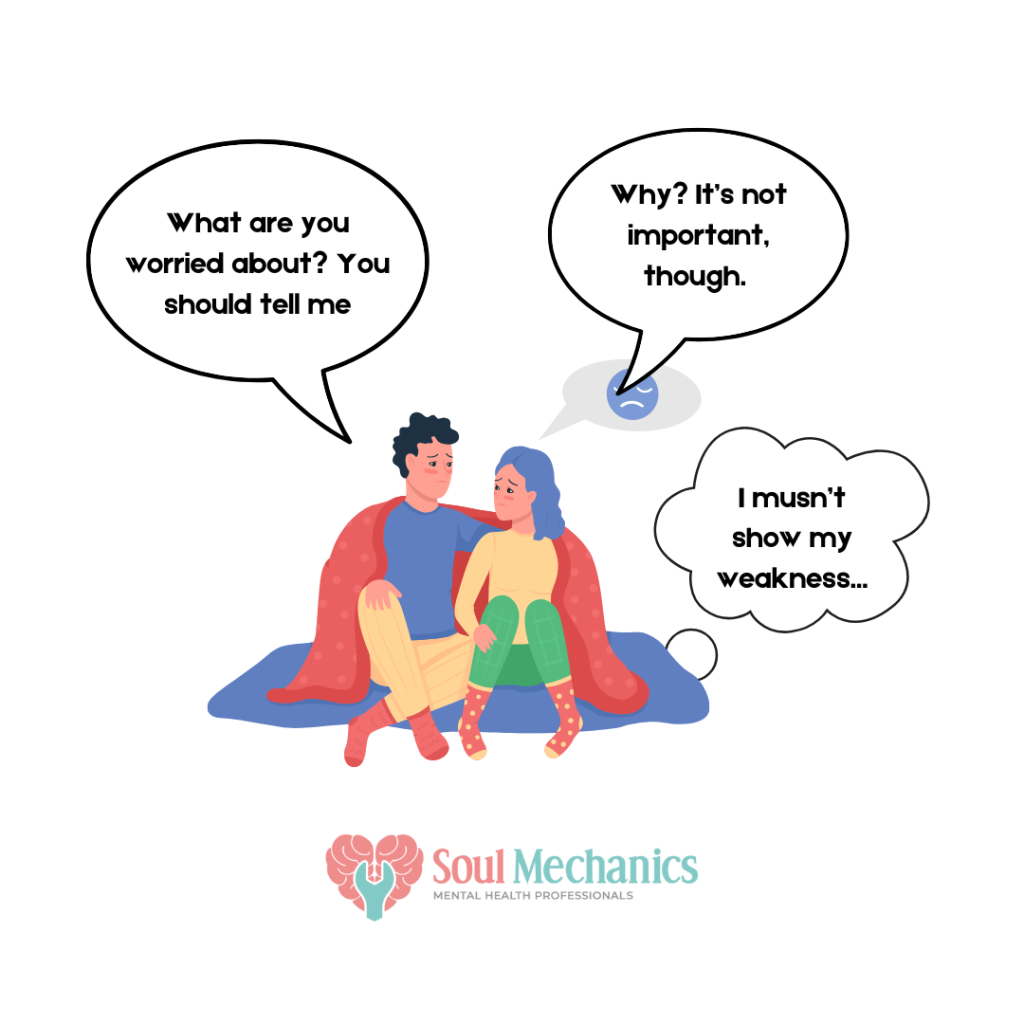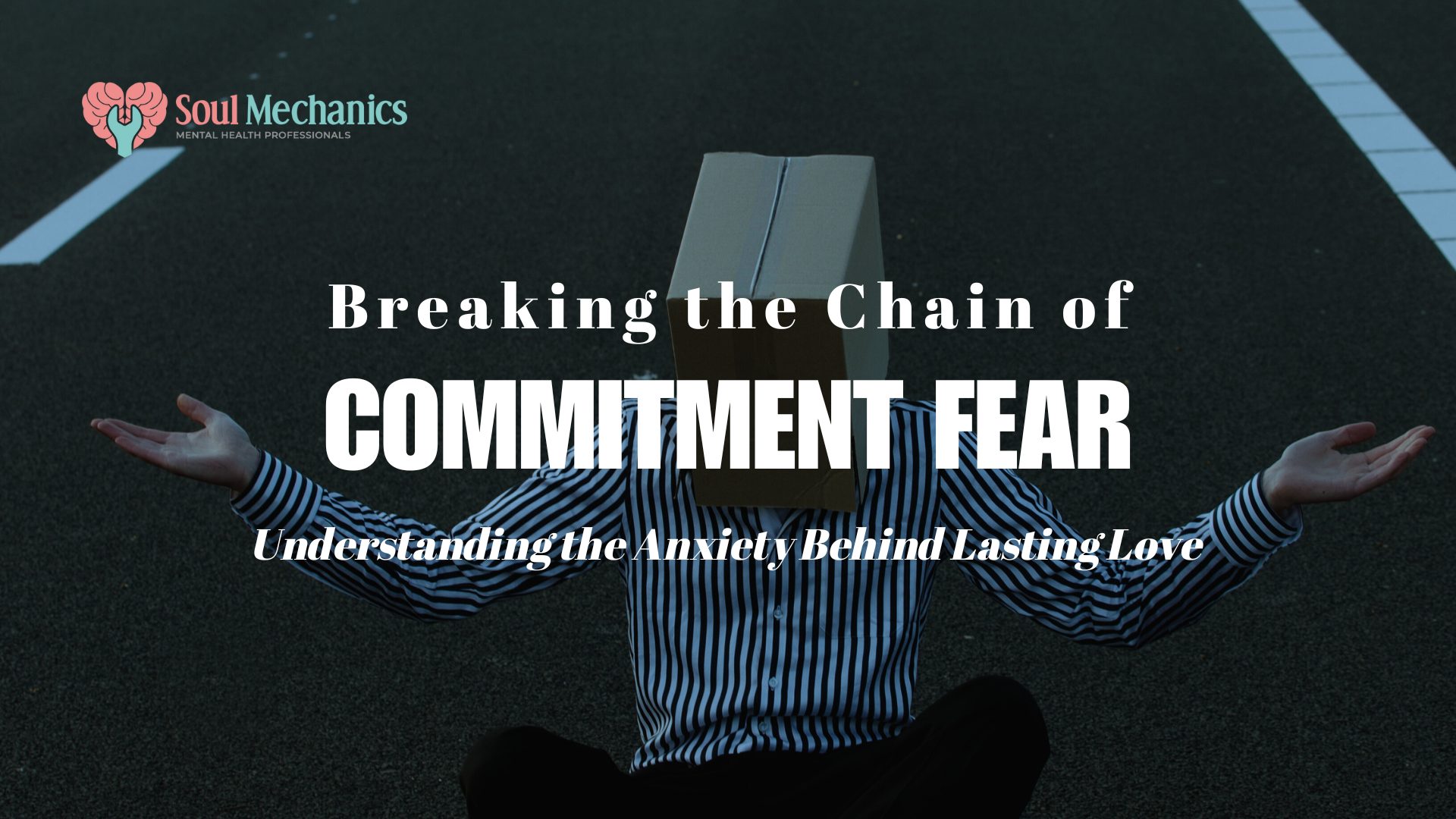Breaking the Chains of Commitment Anxiety
Breaking the Chains of Commitment Anxiety

Written by Jenefa Anthony | KB 11780
Commitment in romantic relationships is often seen as a milestone of emotional connection, trust, and stability. However, for many, the concept of commitment triggers profound fear and anxiety. This phenomenon, commonly referred to as "commitment phobia," goes beyond a hesitation to settle down, often rooted in deep psychological complexities. It impacts individuals, their partners, and the dynamics of the relationships they try to nurture.
Understanding Commitment Anxiety

The fear of commitment is a form of anxiety characterized by discomfort or reluctance to form long-term emotional bonds. It stems from a conflict between the desire for companionship and internal resistance to vulnerability or exclusivity. Individuals with commitment fear may genuinely seek relationships yet feel significant unease when facing future-oriented discussions or milestones.

The Psychological Roots of Commitment Anxiety
Attachment Styles and Early Relationships

Attachment theory explains how early caregiver relationships shape adult intimacy patterns.
- Secure Attachment: Develops when caregivers are supportive, leading to comfort with closeness.
- Avoidant Attachment: Results from inconsistent caregiving, making closeness feel threatening.
Adults with avoidant attachment styles often perceive emotional intimacy as a risk, causing hesitation in defining relationships or planning for the future.
Click here to learn more about dating someone with avoidant attachment.
Fear of Vulnerability

Vulnerability is essential for meaningful relationships, but past betrayals or emotional abuse can make it feel risky. This fear often leads to behaviors such as:
- Avoiding personal disclosures
- Keeping conversations light
- Maintaining emotional distance

Concerns About Independence

Highly independent individuals may see commitment as a threat to their autonomy. This fear often manifests as resistance to joint decision-making or long-term plans.
Emotional Scars from Past Relationships
Unresolved trauma from previous relationships—such as infidelity or painful breakups—can cause subconscious defenses that prevent full investment in new connections.

Signs of Commitment Anxiety in Relationships
Recognizing the signs of commitment anxiety can help both individuals and their partners address these challenges:
Avoidance of Labels: Resisting relationship definitions or keeping things casual.Frequent Breakups: Cycling through short-term relationships due to fear of deeper connections.Sabotaging Behaviors: Picking fights or creating distance to avoid commitment.Avoidance of Future Discussions: Deflecting or avoiding conversations about marriage, cohabitation, or shared goals.
How to Overcome Commitment Anxiety
Breaking free from commitment anxiety requires understanding its roots and taking deliberate steps toward emotional growth.
1. Build Self-Awareness
Reflect on personal attachment patterns, past experiences, and fears. Understanding the origins of commitment anxiety is key to addressing it.
2. Take Gradual Steps Toward Vulnerability
Practice sharing personal thoughts and feelings incrementally. Short-term commitments—such as planning a weekend trip—can help build confidence in deeper connections.
3. Seek Professional Guidance
Therapists provide a safe space to process past traumas and develop healthier emotional patterns. Therapy is especially beneficial for addressing avoidant attachment styles or emotional scars.
4. Communicate Openly with Your Partner

Discussing fears honestly allows for mutual understanding and patience. Partners can work together to create a supportive environment that fosters trust and growth.
The Role of Partners in Addressing Commitment Anxiety

Partners can play a critical role in helping individuals overcome commitment fears. Patience, empathy, and open communication are essential. They can encourage gradual steps toward intimacy and avoid pressuring their partner into immediate decisions.
Embracing Lasting Love

Commitment does not have to be synonymous with fear. By understanding and addressing the psychological roots of commitment anxiety, individuals can open themselves to deeper connections and lasting love. The journey involves introspection, patience, and a willingness to grow.
Actionable Tips for Readers
Reflect on your attachment style and how it influences your relationships.
Start small—set manageable goals for emotional openness.
Consider therapy to work through unresolved fears.
Communicate openly with your partner about your feelings.
Final Thoughts
The fear of commitment is a complex but surmountable challenge. By addressing its root causes and embracing gradual steps toward emotional vulnerability, individuals can build healthier, more fulfilling relationships. With patience, introspection, and support, lasting love becomes a possibility.
If you enjoyed reading this, why not broaden the horizon of knowledge by learning about "Attachment Styles: Dating Someone With Avoidant Attachment"? You can read the blog here.
For more content related to mental health do follow us on our official Instagram.

